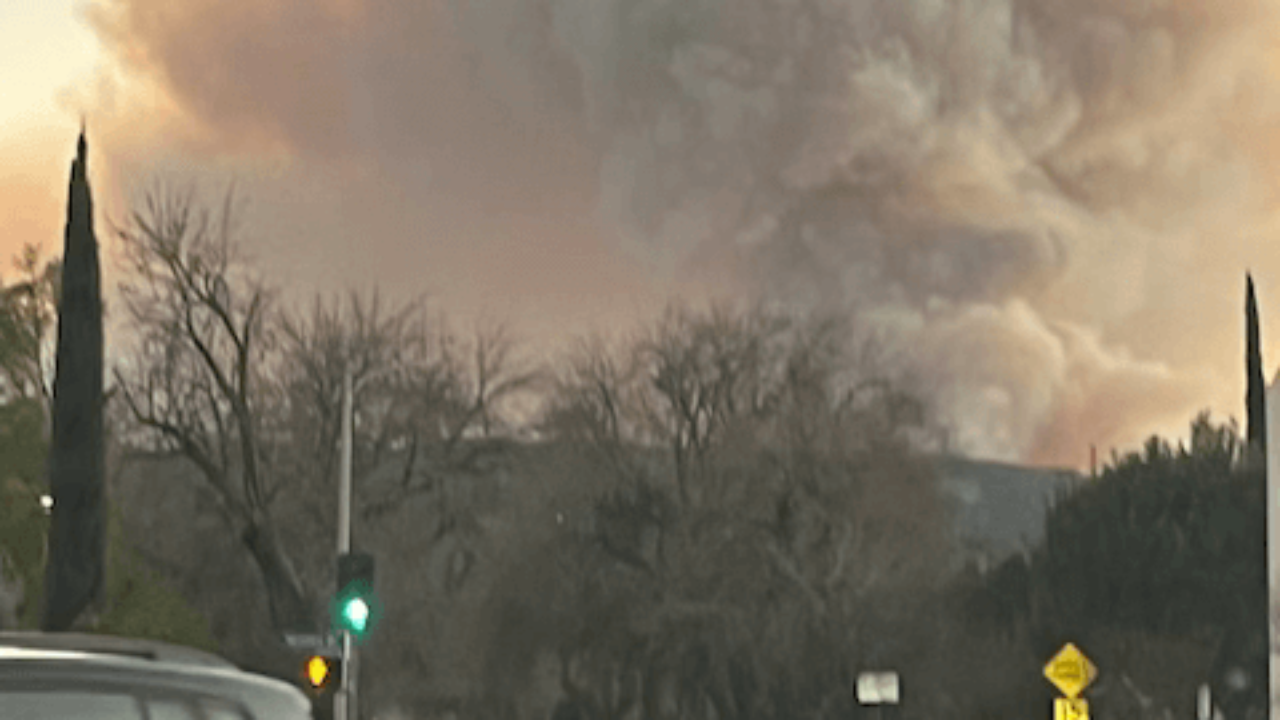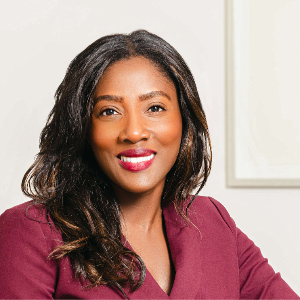
Packing Priorities: What the LA Fires Taught Me
It was just another Wednesday morning until I got the call from my dad.
“Turn on the news!” he said. “LA is on fire.”
I was sure he was exaggerating, but I switched on the news anyway. All the major channels seemed to be showing the same thing—a news conference of an official-looking woman at the podium, flanked by a posse of other official-looking people behind her. To her left stood an animated individual, rapidly moving his hands and mouth to convey the woman’s message in sign language.
“We have not yet determined the cause of the fire,” the official stated, her voice steady but filled with urgency. “However, the Palisades Fire has already consumed more than 15,000 acres, and containment efforts have been difficult. The Eaton Canyon Fire is rapidly spreading. There are two confirmed fatalities and approximately 100 structures have been destroyed. Firefighters are working tirelessly to …”
Oh. That sounded serious.
I switched off the TV. My husband was a CNN junkie, but I found the news depressing and rarely watched it. When he was home, the voices of CNN anchors filled our living room—background noise to me, as muted and colorful as the gigantic painting on our wall.
We live approximately 15 miles from Pacific Palisades in an area known as the Valley. The Palisades was an area where I had occasionally met up with friends for brunch and yoga. Imagining it reduced to ashes was hard to process.
Eaton Canyon, though nearly a 45-minute drive away, felt just as personal. It was our family’s go-to spot whenever we needed a break from the city. The Eaton Falls hiking trail was an easy trek that led to a cool waterfall about a mile in. Cooling off in the plunge pool after a long hike was the perfect way to spend a hot Cali day. In our kitchen, a cherished family photo was pinned to the board, capturing my husband, our daughter, and me smiling in front of the cascading waterfall. The thought of it all going up in flames was heartbreaking.
I made my bed, got dressed, and tried to push the fires out of my mind. What good would worrying do? This was exactly why I avoided the news—it made me anxious and helpless. I settled in at my desk and began my work-from-home routine, determined to focus on something within my control.
But over the next two days, the fires became impossible to ignore. They were on everyone’s lips. I overheard conversations at the market, the gym—everywhere. Strangers passing by whispered about the worsening situation, more reported deaths, and the growing number of homes reduced to ashes.
On the morning of January 10th, while deeply engrossed in work, a loud, jarring tone from my phone shattered my concentration. An Amber Alert, I thought, instinctively reaching to silence it. I wasn’t driving, so I figured I wouldn’t be much help in spotting a vehicle on the road. But when I glanced at the screen, I froze. It wasn’t an Amber Alert. It was a fire evacuation warning.
Some efficient system had flagged my area as being at risk. My heart pounded. Could this be real? Were the fires, once a distant threat 15 miles away, now creeping dangerously close?
I immediately called my husband.
“We got a warning,” I said, my voice unsteady. “What do you think we should do?”
“Well,” he replied calmly, “it’s just a warning for now. Let’s keep an eye on things in case anything changes. Maybe we should pack a few things, but nothing’s urgent yet.”
The yet gnawed at me. I didn’t want to be caught unprepared or regret not acting sooner. Hanging up, I sprang into action and turned on the news. Every channel painted the same grim picture—the fire was spreading fast, firefighters were stretched thin, and containment efforts were still grim.
Without hesitation, I began gathering our essentials. First, our portable safe containing cash, passports and vital documents—our marriage license, birth certificates, and my daughter’s adoption papers. Next, I pulled down a large plastic bin of family photos, a shoebox filled with handwritten letters from my late grandmother, and a cherished keepsake from my late mother along with expensive jewelry she’d given me. Many of these items could never be replaced.
I gathered everything into a large laundry basket, covered it with a blanket, and carried it out to the trunk of my car. Then I got in and headed to pick up my 11-year-old daughter from school.
When I told her about the evacuation warning, her eyes lit up with excitement. “I wanna pack my own stuff!” she announced enthusiastically.
“That’s fine,” I said, trying to stay calm, “but just bring the essentials.”
“Are we going to Grandpa’s?” she asked, already thinking ahead.
“That’s probably best,” I replied. “We should leave before traffic gets unbearable.” My father lived 90 miles away.
When we got home, my husband was already there, glued to CNN.
“Daddy, we have to pack!” my daughter declared, as if she were the only one fully informed and responsible for keeping us on track.
My husband glanced at her, shifting the conversation. “How was school?” he asked casually.
“We’re going to Grandpa’s,” she said, ignoring his question. They had a habit of talking past each other, each sticking to their own narrative.
My daughter skipped to her room and pulled down her favorite pink duffel bag. Without hesitation, she tossed in an entire drawer of workout clothes and oversized hoodies. Then she grabbed her turquoise roller bag and stuffed it with shoes, pajamas, Squishmallows, crayons, and colored pencils. Once satisfied with her packing, she used her Apple Watch to call her friends and inform them—rather proudly—that we were leaving town.
"Slow down," I said, trying to rein her in. "We’ve only received a warning."
But outside, beyond the hill, a thick layer of smoke was unmistakably visible. Our gated condominium community was stirring with nervous energy, neighbors wheeling out suitcases and loading up their cars in the parking garage.
“I’m ready to go,” my daughter said impatiently, practically bouncing in place.
This was the problem with sharing information with kids—they didn’t always grasp the gravity of the situation. Her excitement was beginning to wear on me. I needed space to think, to figure out what we should do next.
And then there was my husband—calm, composed, and maddeningly casual. His biggest contribution so far had been pulling out a couple of suitcases “just in case.” Aside from that, he seemed entirely unbothered.
I sat on the edge of the bed, mentally running through a list of essentials, wondering if there was anything of significance I’d forgotten to pack. Then it hit me—Omg, my clothes!
I was a self-proclaimed fashionista, and my closet was my sanctuary—meticulously curated, inspired by Carrie Bradshaw’s in Sex and the City. Shopping was my passion, my therapy, my armor. My wardrobe didn’t just comfort me; it transformed me, allowing me to present the best version of myself. The thought of losing it all sent me into a frenzy.
I sprang into action, eyeing the suitcases my husband had so nonchalantly placed out. Priorities first—I grabbed my most prized possessions: the large Louis Vuitton tote I’d only carried once, my Chanel shoes, a YSL bag, Gucci heels, Louboutins, Fendi pieces, and my beloved Burberry trench coats and scarves.
I preferred dresses—they were effortless, an instant outfit—so I filled another suitcase with my cashmere sweater dresses, layering in cashmere sweaters. The last suitcase I filled with about 30 silk blouses, leather skirts, trousers, and my favorite blazers – most of these items were still adorned with their original tags.
I moved quickly now, picturing the flames tearing through my wardrobe, reducing pieces I hadn’t even worn yet to ashes. My heart pounded with urgency, and my hands worked with purpose.
Through it all, my husband sat comfortably in the corner chair of our bedroom, watching me with quiet amusement. I ignored him, rolling the suitcases out to the garage and packing them tightly into the trunk and back seat of my SUV. It was filled to the brim, yet my closet still seemed untouched.
With no suitcases left, I resorted to grabbing garbage bags, carefully stuffing them with more wardrobe essentials—jeans, slacks, belts. Despite everything I had packed, only about 25% of my closet was secured, even though both my SUV and my husband’s were now overflowing.
I felt a small sense of relief knowing that at least some of my things were safe. But back inside the house, doubt crept in. Had I packed the right items? Did I really want to take the grey suede Jimmy Choo pumps over the camel ones? The indecision frustrated me.
Finally, I turned to my husband. "Okay, we should probably get on the road. They’ve shut down Hayvenhurst so traffic is probably going to be crazy,” I said. Hayvenhurst was a major intersection only a few blocks from our home.
He didn’t even look up. "I’m not going," he said flatly. "It’s just a warning. There’s no sense in rushing off only to have to come back. You guys can go. I’ll follow if things get serious."
I stared at him in disbelief. "Everyone’s leaving!" My voice was rising now. "Our cars are the only ones left in the parking garage, and Cynthia called, saying we should find somewhere else to stay tonight!"
Cynthia was the general manager of our HOA.
"Well, Cynthia isn’t the law," he replied coolly. "We don’t have to follow her recommendation."
His tone was steady, the kind I knew couldn’t be easily swayed.
"You’d rather sit here and risk everything than get on the road and be safe?" I shot back, frustration boiling over.
"Calm down," he said, unmoved. "If we’re told to evacuate, I’ll gladly go."
I clenched my jaw, realizing this conversation was going nowhere. It was late—close to 10 PM—and I was drained. I considered taking my daughter and leaving with everything I’d packed, but what was the point of saving my things without my husband? We’d been together over 20 years. He was my best friend and the thought of facing life without him felt like an unbearable loss.
I slipped off my shoes, washed my face, and got ready for bed. I told my daughter how proud I was of her for packing her essentials and reassured her we’d be ready if it came to that. Lying next to my husband that night, I felt a twinge of shame for my frantic packing. I had wanted to save as much as I could. But in the end, I knew none of it would matter without him. The packed car stayed that way for a week before I slowly began unpacking. A few bags still sit in the trunk—the newfound space in my closet feels oddly liberating. Maybe I didn’t need as much as I thought.
A few days later, while catching glimpses of the news over my husband’s shoulder, I heard about the Williams family. They had lost everything in the Eaton fire, and their story hit me hard. I logged onto GoFundMe and donated the cost of a pair of designer shoes. It was a small gesture, but it felt right.
Experiences like these have a way of putting things into perspective. We spend so much time accumulating—clothes, gadgets, ambitions—only to realize how little they mean in the face of real loss. I’m guilty of it too. But ultimately, standing in my half-empty closet, surrounded by designer labels and carefully chosen outfits, I saw things differently. The truth was, the most important things in my life couldn’t be packed into a suitcase. I’m glad I know that now.
Have you ever had a moment that made you reevaluate your priorities? I'd love to hear your thoughts or experiences in the comments.

